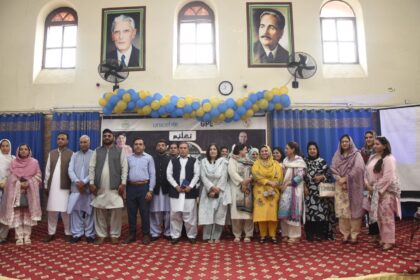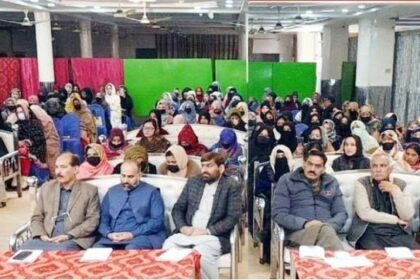The Senate Functional Committee on Government Assurances convened to assess progress on key national projects, emphasizing issues regarding digital connectivity, healthcare infrastructure, road construction, and petroleum pricing deregulation. Under the leadership of Senator Abdul Shakoor Khan, the committee reviewed assurances provided by federal ministries and directed relevant authorities toward swift resolution of delays and improvement of service delivery.
A major topic explored during the session was the inadequate telecom services in underserved areas. As concerns rose about subpar connectivity in several regions, representatives from the Ministry of Information Technology and Telecommunication informed the Committee that surveys were completed, resulting in the launch of new projects aimed at providing 4G data and voice call services in three locations within Dheri Mera, Union Council Salhad, District Abbottabad. Despite this development, Committee members expressed dissatisfaction over the pace of progress. Senator Dost Muhammad Khan highlighted the plight of approximately 25,000 to 30,000 residents in Wana, South Waziristan, who remain cut off from internet connectivity. Senator Kamran Murtaza underscored similar challenges in Balochistan, noting the presence of inactive telecommunication towers. The Committee subsequently directed the Ministry to provide a detailed progress report within three months.
Addressing significant delays in healthcare infrastructure, the Committee discussed the prolonged delay in installing an MRI machine at Islamabad’s Federal Government Polyclinic Hospital. Ministry officials explained that the MRI machine was donated by the Government of Japan, but procedural shifts—from Pak PWD to CDA for civil work—have delayed its installation. Officials further indicated that the required civil work would conclude within ten days, with Japanese engineers scheduled to arrive for installation in early August. Chairman Senator Abdul Shakoor Khan urged authorities to coordinate proactively with the Japanese Government to confirm the installation timeline and prevent any further hindrance.
On infrastructure development, road deterioration in Khyber Pakhtunkhwa emerged as a prominent concern, with Senator Dost Muhammad Khan urging immediate action. The Committee recommended that the National Highway Authority (NHA) enforce strict adherence to construction standards and hold contractors accountable for substandard work. Ministry representatives assured senators that they would engage contractors promptly to ensure requisite repairs and compliance with quality standards.
Furthermore, the Committee examined moves toward deregulating petroleum prices. Senator Kamran Murtaza sought detailed explanations regarding recent discussions on transferring price-fixing powers to oil marketing companies (OMCs). The Ministry of Energy (Petroleum Division) officials revealed that, following directions from the Prime Minister, extensive consultations with stakeholders—including refineries, the Oil Companies Advisory Council (OCAC), the Oil Marketing Association of Pakistan (OMAP), petroleum dealers, and transporters—had begun to formulate an effective deregulation framework.
Expressing concerns, Senator Murtaza questioned potential risks such as diminished market shares for domestic refineries, increased fuel smuggling, compromised fuel quality, market dominance by prominent OMCs, price volatility during peak consumption periods, and the likelihood of hoarding due to unfettered imports. Officials clarified that to mitigate these risks, a phased deregulation approach is being actively considered. Initially, authorities may unlink the current petroleum pricing formula from Pakistan State Oil (PSO) benchmark pricing, allowing greater market competition. Continuous monitoring of market dynamics will accompany the progressive implementation of deregulation, with emphasis placed on consumer interest protection and the petroleum sector’s overall stability.
Senators Zamir Hussain Ghumro, Dost Muhammad Khan, Kamil Ali Agha, Kamran Murtaza, and senior ministry officials attended the committee session, reflecting collective commitment toward resolving public grievances and ensuring accountability through government assurances.











